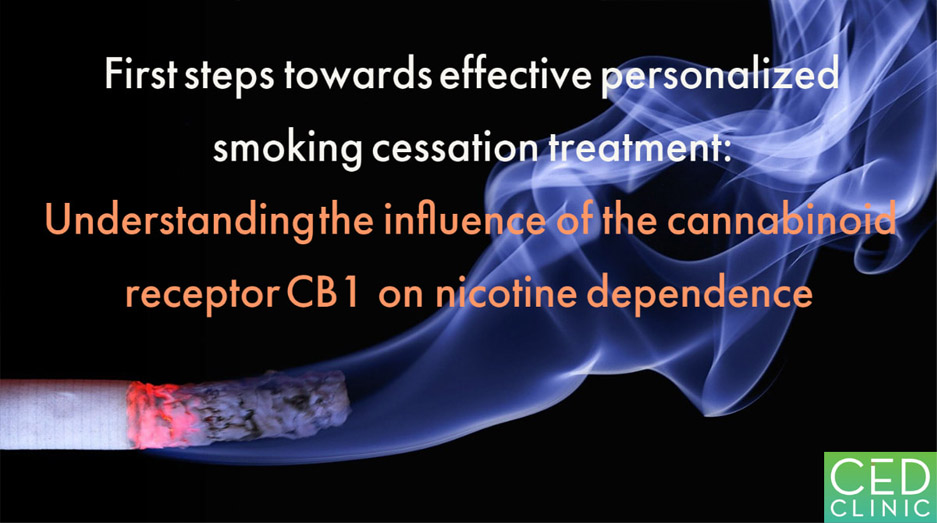Tobacco smoking is a leading cause of preventable death, yet only one-third of those who try can successfully quit smoking. This highlights the current lack of effective treatment options for nicotine dependence. Treatment personalization, an emerging, effective smoking cessation treatment, involves customizing therapies based on some genetic features of the patients.
A genetic feature recently found by scientists to influence nicotine dependence in smokers is the variation in the CB1-encoding gene. This gene encodes for the cannabinoid receptor CB1, which is widely expressed in the brain and involved in multiple signaling processes important for human’s behavior. More specifically, according to a recent study, although all smokers chose cigarettes with higher nicotine concentration more often than cigarettes with lower nicotine concentration, those having one variant of this gene appeared to have significantly weaker preference. In other words, variations in CB1 receptor expression appear to have a significant effect on nicotine reinforcement, or the desire and preference for nicotine, among smokers. This exciting and surprising finding provides impetus for further studies into the influence on smoking behaviors of the CB1 receptor in particular and the endocannabinoid signaling system that it belongs to in general, which have vast implications on innovative genetic-driven smoking cessation personalized treatment.

